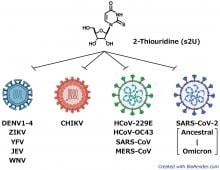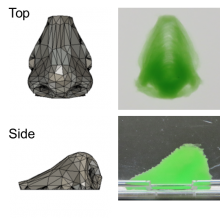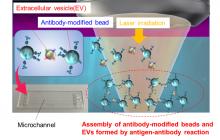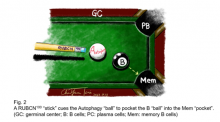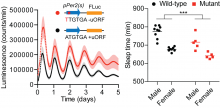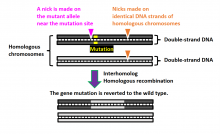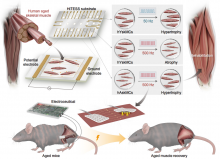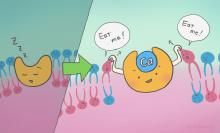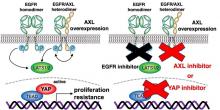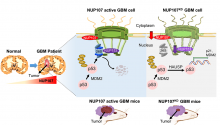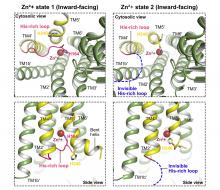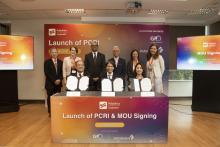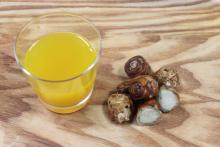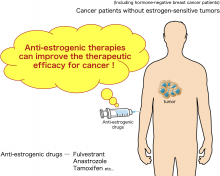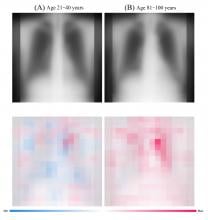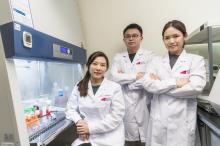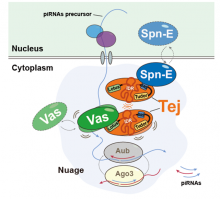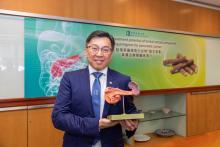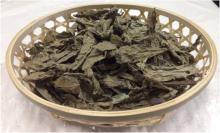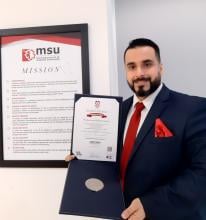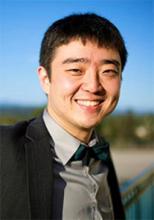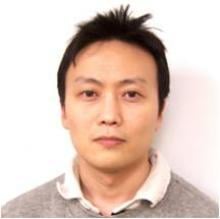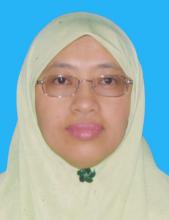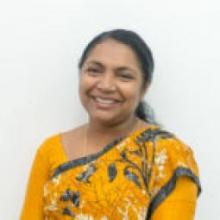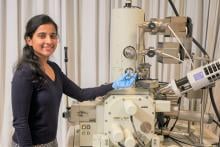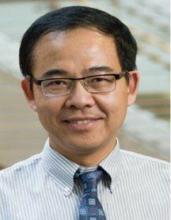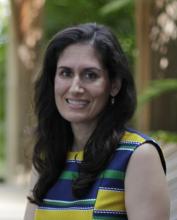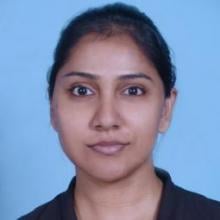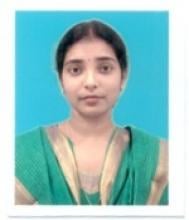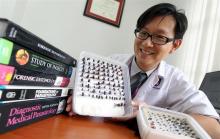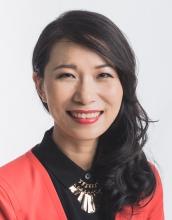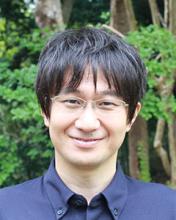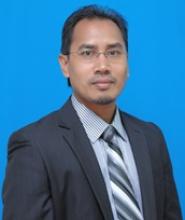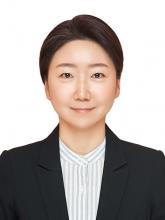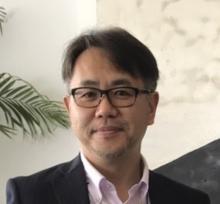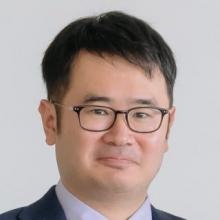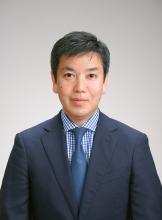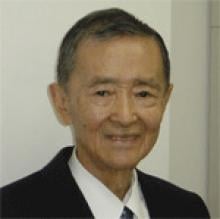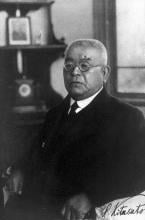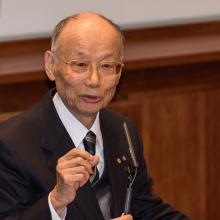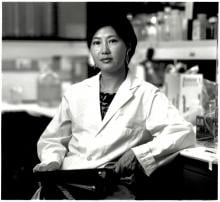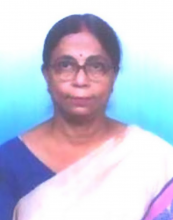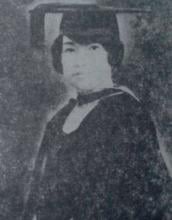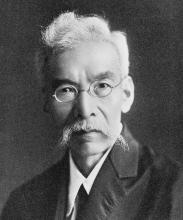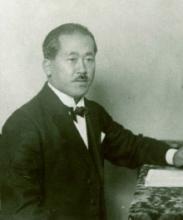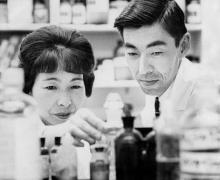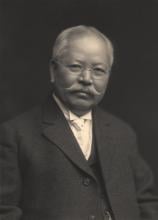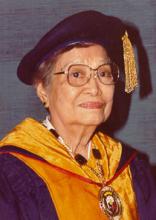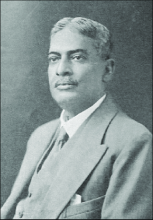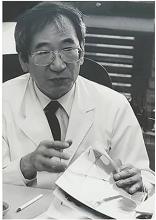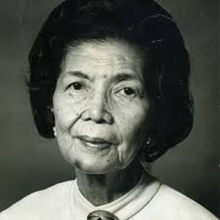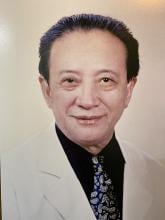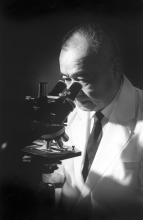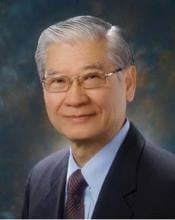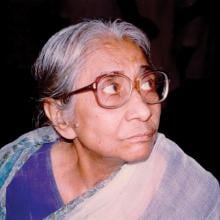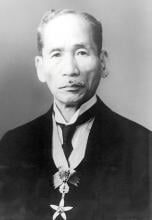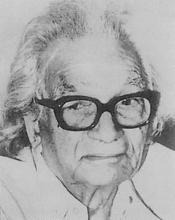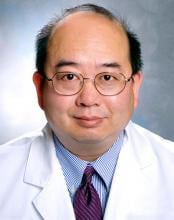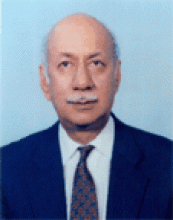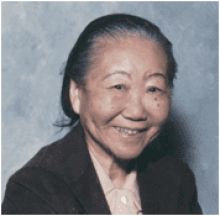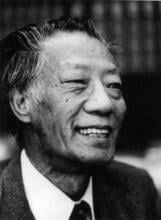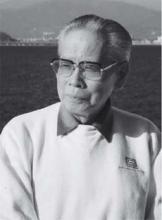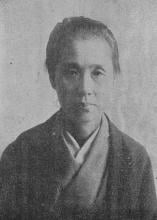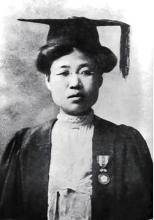Medicine
News
20 Oct 2023
New perspective argues pursuing fair AI for healthcare requires cross-disciplinary collaboration to translate methods into real-world benefits.
16 Oct 2023
The shortlist for the Applied Microbiology International Awards 2023 has now been announced.
The AMI Awards programme is designed to celebrate the brightest minds in our field and promote the research, group, projects, products and individuals who continue to help shape the future of applied microbiology.
16 Oct 2023
Researchers from Osaka University developed a cell-friendly means of bioprinting at high fidelity. By successive injection of a cell-based ink and a printing support, the ink solidified into defined geometries, even into the shape of a human nose. Printed cells remained viable for at least two weeks. This work is an important milestone toward developing lab-grown tissues and organs, and eventually advancing regenerative medicine as well as animal-free drug safety testing.
05 Oct 2023
Hunting for supermassive black holes, Coastal survival at risk, Calcium and dead cell clean-up, Two naps are better than one & Pineapple leaf prosthetics. Read all in the latest Editor's Choice.
05 Oct 2023
Osaka Metropolitan University researchers have used the power of laser light to accelerate the reaction between cancer cell-derived extracellular vesicles—a kind of nanoparticle—and antibody-modified microparticles. The three-dimensional structure of the resulting aggregates was then analyzed using a confocal optical system. The results demonstrated the ability to measure, within 5 minutes, approximately 1,000 to 10,000 nanoscale EVs contained in a 500 nL sample.
29 Sep 2023
The authors discovered a shorter isoform of Rubicon called RUBCN100, which enhances autophagy in B cells.
29 Sep 2023
The authors identified a structure in the circadian mRNA Period2 that affects the sleep-wake cycle. The results indicate how translation and post-transcriptional processes influence the body’s internal clock and its impact on sleep patterns.
15 Sep 2023
Researchers led by Osaka University developed a novel genome editing technique known as NICER, which results in significantly fewer off-target mutations than CRISPR/Cas9 editing. The technique uses a different type of enzyme that makes single-stranded “nicks” in the DNA. Repair of these nicks is more efficient and accurate than repair of double-strand breaks caused by the current CRISPR/Cas9 editing. This technique represents a novel approach for the treatment of genetic diseases caused by heterozygous mutations.
15 Sep 2023
Asia Research News monitors the latest research news in Asia. Some highlights that caught our attention this week are a previously unrecorded species of ant found in someone’s backyard, comparing traditional medicine to drugs for indigestion, and how breastfeeding can help babies develop a healthy gut.
15 Sep 2023
This novel technology:
- provides potential treatment in relation to restoring aging muscle cells obtained from older adults and remedying sarcopenia in aging animals through bioelectric medicine
- presents a new paradigm for treating sarcopenia, for which no drugs are currently available to treat this condition
- has been reported in the internationally renowned academic journal, Proceedings of the National Academy of Sciences (PNAS)
15 Sep 2023
A reanalysis of studies on night shift naps reveals the ideal snoozing schedule that may help combat fatigue and drowsiness when staying up all night.
14 Sep 2023
Scientists have found that extracellular calcium mediates the activation of a membrane protein that waves the flag signalling cell death
10 Sep 2023
AXL and EGFR inhibitors combined hold promise in fighting certain head, neck, and lung cancers
08 Sep 2023
Capturing carbon dioxide, Shells go nuclear, Worms surf electric fields, Brain repair & Creating matter from light. Plus from our blog: Monitoring research for further impact. Read all in the latest Editor's Choice.
04 Sep 2023
Researchers from Osaka University have revealed that the expression of a specific isoform of GREB1 Is4 is induced in malignant melanoma cells by the melanocyte-specific transcription factor, MITF. They revealed that GREB1 Is4 stimulates pyrimidine biosynthesis and promotes cancer cell proliferation. Furthermore, the anti-tumor effect of antisense nucleic acids against GREB1 showed a potential new modality for malignant melanoma.
01 Sep 2023
Researchers at Kanazawa University report in Cell Reports how alterations in the nuclear pores lead to the degradation of anti-tumor proteins.
31 Aug 2023
Roughly 10% of the proteins in our body rely on zinc. A group of researchers has unearthed the secrets behind a tiny but crucial protein that shuttles zinc ions within our bodies, offering a deeper understanding of how our cells maintain optimal health.
30 Aug 2023
How much is adequate screen time for a child? It is the question at the forefront of many parents’ minds. Now, a recent cohort study has found that the amount of screen time spent by one-year-olds is associated with developmental delays.
29 Aug 2023
It is the first local research and innovation platform enabling Primary Care Professionals from public and private healthcare to deliver stronger primary care and improve patients’ health outcomes
25 Aug 2023
Osaka Metropolitan University scientists have verified the anticancer effects of Kencur, a tropical plant of the ginger family, mainly grown in Southeast Asia, in cell and animal experiments. They found that Kencur extract and its main active components significantly inhibit cancer cell growth at the cellular and animal levels. Furthermore, the involvement of TFAM in the mechanism of action was confirmed.
21 Aug 2023
Deepak Verma from Chulalongkorn University and his international team of researchers are exploring ways to enhance chitosan using techniques like adding photosensitizers, dendrimers, and chemical modifications. They also surveyed the use of chitosan nanoparticles for medical purposes, notably wound dressings.
21 Aug 2023
Anti-estrogenic therapies can suppress the growth of cancer that does not express estrogen receptors; when combined with immune checkpoint inhibitor therapies, they halt tumor progression in mice models.
17 Aug 2023
Japanese fossil forest found, AI finds a way to people’s hearts, Language diversity and child social development & Supplement for kidney disease. Plus Submissions open for Asia Research News 2024. Read all in the latest Editor's Choice.
16 Aug 2023
Osaka Metropolitan University scientists have developed an AI model that accurately estimates a patient’s age, using chest radiographs of healthy individuals collected from multiple facilities. Furthermore, they found a positive relationship between differences in the AI-estimated and chronological ages and a variety of chronic diseases, such as hypertension, hyperuricemia, and chronic obstructive pulmonary disease. In the future, it is expected that AI biomarkers will be developed to predict life expectancy, estimate the severity of chronic diseases, and forecast surgery-related risks.
16 Aug 2023
A research team co-led by City University of Hong Kong (CityU) and The University of Hong Kong (HKU) has recently made a significant advancement in spinal cord injury treatment by using genetically modified human neural stem cells (hNSCs). They found that specifically modulating a gene expression to a certain level in hNSCs can effectively promote reconstruction of damaged neural circuits and restore locomotor functions, offering great potential for new therapeutic opportunities for patients with spinal cord injury.
11 Aug 2023
Asia Research News monitors the latest research news in Asia. Some highlights that caught our attention this week are particle pollution linked to antibiotic resistance and microplastics being found in the body, fossils that show a marine reptile that used filter feeding, and how a connection in our brains compares our rewards to ones that others received.
09 Aug 2023
Researchers from Osaka University clarified the interactions of the proteins Tejas (Tej), Vasa (Vas), and Spindle-E (Spn-E) in the formation of cellular compartments known as nuage and the processing of PIWI-interacting RNA (piRNA) precursors in Drosophila melanogaster ovaries. piRNAs help prevent the transmission of genetic mutations through reproductive cells, and insight into the dynamics of piRNA formation and processing may contribute to our understanding of the mechanisms underlying reproductive disorders, including infertility.
07 Aug 2023
A research led by scientists of Hong Kong Baptist University (HKBU) found that isoliquiritigenin (ISL), a flavonoid isolated from the Chinese herbal medicine licorice, can inhibit pancreatic cancer progression. It may also enhance the efficacy of conventional chemotherapeutic drugs in treating pancreatic cancer. It is the first time that a research group reported the anticancer potential of ISL in treating pancreatic cancer.
04 Aug 2023
Osaka Metropolitan University scientists tested the antiobesity effects of Mallotus furetianus extract native to Hainan Island, China, using obesity model mice. As a result, body weight and adipose tissue weight of obesity model mice were significantly reduced by the intake of Mallotus furetianus extract. Fatty liver was suppressed and adipocyte size reduction in adipose tissue was observed. Further investigation into the mechanism revealed that fat synthesis is inhibited by suppressing the expression of several transcription factors involved in differentiation into adipocytes.
Events

19 Mar 2019
Innovation. Access. Commercialisation.

12 Nov 2018
Hear innovative science and benefit from the vast knowledge shared at the FCS 2018!

04 Sep 2018
The 2-day conference, with the theme "DIGITAL HEALTHCARE: THE JOURNEY TOWARDS SUCCESS" will cover a wide range of topics and addresses key challenges faced today such as:
Innovative Care Models,
Healthcare Finance,
Cyber Security,
Healthcare Innovations,
and many more.

05 Nov 2018
Topics will include: digital transformation, health information exchange, data to knowledge, consumer engagement and many more.

24 May 2018
Guest of Honour confirmed! Dr. Pichet Durongkaveroj, Minister of Digital Economy and Society, Thailand

21 Apr 2018
Organized by the Student Executive Council, Tun Dr Ismail College, Universiti Kebangsaan Malaysia (UKM)

05 Aug 2018
The 8th International Multidiscipline Conference on Optofluidics 2018 will be held at Baolong Hotel, Shanghai, P.R.China on 5th – 8th August 2018

19 Mar 2018
An exclusive, customized partnering forum that brings together U.S. and European drug development companies with Asian biotech and pharmaceutical companies interested in research and licensing collaborations.
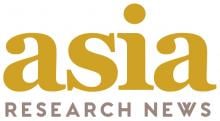
27 Jun 2018
As Asia's leading Bio Event, BIOtech Japan 2018 is expected to gather 420 exhibitors and 41,000 visitors from around the world.

06 Jun 2018
Discover the machine intelligence tools & techniques set to revolutionise healthcare applications, medicine & diagnostics.

01 Mar 2018
Revamped and revitalised from BioPharma Asia Convention, we’re focusing on the hottest trends to bring you Asia’s most exciting pharma event.

24 Oct 2017
Conference, and SERIS (Solar Energy Research Institute of Singapore) Workshops, lab tour and visit to the world’s largest Floating PV testbed

03 Nov 2017
Symposium on oral health related quality of life "Measuring outcome beyond clinical indicator" will take place on 3-4 November at University of Malaya, Malaysia.

02 Sep 2017
The project is a collaboration between Singapore-based photographer, Pearl Gan with Professor J.Kevin Baird in association with the Oxford University Clinical Research Unit, Vietnam; Eijkman Oxford Clinical Research Unit, Jakarta and The Welcome Trust.

30 Nov 2017
SELECTBIO Asia is launching its Point-of-Care Diagnostics and Global Health Asia 2017 Conference to be held November 30-December 1, 2017 in Taipei, Taiwan.

26 Oct 2017
To be held on October 26-27, 2017 in Porto, Portugal, it is a meeting place for leaders in the field to discuss the issues and challenges scientists and researchers face in all aspects of the biomarker and diagnostic development process from discovery to translation to commercialization.

09 Aug 2017
Pharma+Bio Asia 2017 brings together specialized workshop series for pharmaceutical, nutraceutical, cosmeceutical, biotechnology professionals & students

09 Oct 2017
Join Oxford Global for the Genomics Congress of 2017 in Singapore

09 Oct 2017
Join Oxford Global for the Highly Anticipated Microbiology Congress of 2017 in Singapore

09 Oct 2017
Join Oxford Global for the Genomics Congress of 2017 in Singapore

25 Jul 2017
At the conference, virologists will assess the impact of viral diseases on the food security, food safety, nutrition, and income of rural communities in developed and developing countries

23 Nov 2017
The aim of this Nanomedicine 2017 conference is to bring together leading academic, clinical and industrial experts to discuss development of innovative cutting-edge Nanomedicine and challenges in Nanomedicine clinical translation.

06 Nov 2017
Converging Novel Cancer Discoveries around the World

19 Sep 2017
Innovate. Collaborate. Commercialise. Join us as we navigate India's biopharma future.

25 Sep 2017
With the success of Pharma Middle East 2016, Conference Series LLC proudly announces and invites all the participants across the globe to attend the "12th Annual Pharma Middle East Congress” slated on September 25-27, 2017 at Dubai, UAE.

21 Apr 2017
As Asia is tested against the current state of affairs, the National University of Singapore (NUS) Yong Loo Lin School of Medicine (NUS Medicine) aims to leverage its role as a leading medical and academic institution in driving discourse on Asia’s trajectory over the next 20 to 30 years.

29 May 2017
Challenges and Innovations in Nanomedicine and Drug Delivery Research

19 Jun 2017
Select Biosciences, Inc. is organizing its Second Annual Exosomes and Liquid Biopsies Asia 2017 Conference, June 19-20, 2017 in Taipei, Taiwan.

08 May 2017
Conference Series LLC welcomes you to attend the 8th International Conference and Exhibition on Metabolomics & Systems Biology during May 08-10, 2017 in Singapore. The main theme of the conference is “Rise of New Era in Metabolomics Research”.
Researchers
Dr. Indika Neluwa-Liyanage is a lecturer in Biochemistry at the Faculty of Medical Sciences of University of Sri Jayewardenepura. His research focuses on the metabolic alterations underlying autism spectrum disorders and inherited metabolic disorders.
Dr. Mohammed N. Abdulrazaq is currently an Assoc. Prof. at Department of Engineering & Technology, Management & Science University (MSU), Malaysia.
Universiti Malaysia Sabah
Dr. Connie Cassy Ompok is an early childhood education expert and a Senior Lecturer at the Faculty of Psychology and Education, Universiti Malaysia Sabah. She Started her career in Early Childhood Education as a preschool teacher (2004-2007), a lecturer in early childhood education at the Malaysian Institute of Teacher Education (2008-2016) before serving as a Senior Lecturer in Early Childhood Education at UMS (2016 until now).
University of Malaya
Assoc Prof Dr Loh Siew Yim is a senior lecturer at the faculty of Medicine in University of Malaya, Malaysia
Her research interest is cancer survivorship, and behavioural medicine .
Currently a research assistant in the laboratory of green energy in Zhejiang University of Technology.
Earth-Life Science Institute (ELSI), Tokyo Institute of Technology
Tony Z. Jia is a researcher at Japan’s Earth-Life Science Institute (ELSI), based at the Tokyo Institute of Technology. His research focuses on astrobiology, prebiotic chemistry, and origins of life.
Ulsan National Institute of Science and Technology (UNIST)
Associate Professor Hajin Kim is a biomedical engineer at the Single Molecule Biophysics Laboratory, Ulsan National Institute of Science and Technology, South Korea.
Universiti Malaysia Sarawak
Dr Paul Cliff Simon Divis is the director of Malaria Research Centre at Universiti Malaysia Sarawak (UNIMAS).
University of Malaya
The Neuroscience Research Group is a multi-disciplinary team investigating the nervous system. They are focusing on animal behavioral models for memory in the laboratory. They are studying the effects of food, such as Habbatus Sauda/Black cumin (Nigella sativa) and honey, on brain microstructures and memory. They also compare Islamic and neuroscience perspectives on issues like learning and sleep for children with and without autism spectrum disorders.
Duke-NUS Medical School
Babita Madan is an assistant professor at the Program in Cancer and Stem Cell Biology, Duke-NUS Medical School, Singapore.
Duke-NUS Medical School
David Virshup, M.D., is Director of the Programme in Cancer and Stem Cell Biology (CSCB) and Professor at Duke-NUS Medical School and is jointly appointed as Professor of Pediatrics at Duke University in North Carolina.
I do research on dysmennorrhoea and gender-based violence. I am a pioneer in registered clinical trials on indigenous and Ayurveda medicines in Sri Lanka. I have approval for a herbal preparation, for COVID patients.
My PhD research entitled "No harm done? The experiences of women who inject drugs accessing harm reduction in Indonesia" examines the role of social, political and economic impacts on women who use/inject drugs and the correlation with increase rates of HIV/HCV and incarceration.
National University of Singapore
I work at the intersection of Business, Medicine and Environment. Many of the world’s current problems are best addressed from multiple perspectives. I examine issues ranging from sustainable development, pandemics, diversity, environment, social innovation and philanthropy, and suggest how we can do better.
Nanyang Technological University
Dr. Sravya Tekumalla is currently a Principal Investigator in Nanyang Technological University, Singapore, where she works as a Presidential Postdoctoral Fellow. In addition, she also leads a small team of staff and students working in the domain of metal additive manufacturing (commonly known as 3D printing).
Tohoku University
I am engaged in the development of a new device for embryo evaluation which measures embryo oxygen consumption and a new medication for infertility. Recently, I focused on causative genes of disorders of sex development and searched pathogenic variants using a whole-genome reference panel constructed by Tohoku Medical Megabank Organization.
Duke-NUS Medical School
Professor Linfa Wang is a Professor with the Emerging Infectious Diseases Programme at Duke-NUS Medical School, Singapore.
Associate Professor Sophia Archuleta is the Head and Senior Consultant of the Division of Infectious Diseases at the National University Hospital, Singapore.
Nimanthi Jayathilaka is a professor at the Department of Chemistry, University of Kelaniya, Sri Lanka.
Dr NK Prasanna is currently working as Sr. Scientist & Editor, Indian Journal of Biochemistry & Biophysics, Research Journals Division at CSIR-National Institute of Science Communication and Policy Research, New Delhi. Before joining CSIR (NIScPR), she was at IIT Guwahati. Dr Prasanna completed her Ph.D from Institute of Medical Sciences, Banaras Hindu University, Varanasi.
In CSIR-NIScPR, She served one important flagship journals viz. Indian journal of Biochemistry and Biophysics (IJBB; ISSN: 0301-1208) It is pertinent to mention that the journal ranks first among all the NIScPR journals as per the available Journal Metrics by international agencies such as Thomson Reuters and Scopus. Details of remarkable academic achievements of IJBB which she spearheading, both nationally and globally. The Indian journal of Biochemistry and Biophysics (IJBB) is a premier SCI-indexed bimonthly peer-reviewed research journal that publishes original research articles in the subject area of biochemistry and biophysics
Hira Khalid is an associate professor at the Department of Chemistry of Forman Christian College University, Lahore, Pakistan.
Universiti Teknologi MARA (UiTM)
Dr Heo is currently a senior lecturer at the Department of Microbiology and Parasitology, Faculty of Medicine, Universiti Teknologi MARA, Malaysia.
Duke-NUS Medical School
Dr. Tazeen Jafar is a global health leader and expert with a focus on implementation research in hypertension, cardiovascular disease, and chronic kidney disease.
Duke-NUS Medical School
Prof. Wang Hongyan is the deputy programme director and principal investigator of the laboratory of Neural Stem Cell at Duke-NUS Medical School, Singapore.
Institute for Integrated Cell-Material Sciences (iCeMS) at Kyoto University
Yuichi Taniguchi is a professor at the Institute for Integrated Cell-Material Sciences (iCeMS)/Graduate School of Biostudies, Kyoto University, a team leader at RIKEN Center for Biosystems Dynamics Research and an adjunct professor at Graduate School of Frontier Biosciences, Osaka University.
International Islamic University Malaysia (IIUM)
Dr Ramli is a Professor at Department of Psychiatry, Kulliyyah of Medicine at the International Islamic University Malaysia (IIUM).
Hokkaido University
Ji-Won Lee is an assistant professor at the Faculty of Dental Medicine at Hokkaido University, Japan,
Hokkaido University
Tadahiro Iimura is a professor in the Faculty of Dental Medicine, the Division of Dental Medicine, the Department of Pathobiological Science, Hokkaido University, Japan
Hokkaido University
Tsuyoshi Mita is a specially appointed associate professor at the Institute for Chemical Reaction Design and Discovery (WPI-ICReDD), Hokkaido University, Japan.
Hokkaido University
Manabu Tokeshi is a Professor at the Division of Applied Chemistry at Hokkaido University.
Giants in history
Michiaki Takahashi (17 February 1928 – 16 December 2013) was a Japanese virologist who developed the first chickenpox vaccine.
Irene Ayako Uchida’s (8 April 1917 – 30 July 2013) strides to understand genetic diseases such as Down syndrome paved the way for early screening of chromosomal abnormalities in foetuses.
Baron Kitasato Shibasaburo (29 January 1856 – 13 June 1931) was a Japanese physician and bacteriologist whose work led to a new understanding of preventing and treating tetanus, diphtheria and anthrax.
Maggie Lim (5 January 1913 – November 1995) was a Singaporean physician who promoted family planning and expanded the access to clinics to improve the quality of life for mothers and children in Singapore’s early days.
By isolating soil microorganisms and studying the compounds they produce, Satoshi Omura (born 1935) discovered almost 500 organic compounds with unique properties that were produced by these microorganisms, including many new antibiotics.
The founder of the Adyar Cancer Institute in India, Muthulakshmi Reddy (30 July 1886 – 22 July 1968), fought to uplift women and girls from impoverished situations.
Chinese-American virologist and molecular biologist Flossie Wong-Staal (27 August 1946 – 8 July 2020) was the first scientist to clone HIV and determine the function of its genes.
Maharani Chakravorty (1937 – 2015) was one of India’s earliest molecular biologists whose research paved the way for advances in the treatment of bacterial and viral infections.
Archana Sharma (16 February 1932 - 14 January 2008) conducted research into plant and human genetics that expanded the understanding of both botany and human health. In relation to botany, she uncovered the means by which asexually-reproducing plants evolve into new species.
The first Thai woman to receive a degree in medicine, Margaret Lin Xavier (29 May 1898 – 6 December 1932), is best remembered for her compassion towards her less privileged patients.
In 1915, pathologist Katsusaburo Yamagiwa and his research assistant Koichi Ichikawa became the first to prove that chronic exposure to chemicals can cause cancer.
In 1915, Koichi Ichikawa along with pathologist Katsusaburo Yamagiwa became the first to prove that chronic exposure to chemicals can cause cancer.
Husband and wife team, Kimishige (3 December 1925 – 6 July 2018) and Teruko Ishizaka (28 September 1926 – 4 June 2019) discovered the antibody class Immunoglobulin E (IgE) that triggers allergic reactions. They also discovered that IgE antibodies attach to white blood cells, known as mast cells, releasing histamine, which causes allergic reactions.
Husband and wife team, Kimishige (3 December 1925 – 6 July 2018) and Teruko Ishizaka (28 September 1926 – 4 June 2019) discovered the antibody class Immunoglobulin E (IgE) that triggers allergic reactions. They also discovered that IgE antibodies attach to white blood cells, known as mast cells, releasing histamine, which causes allergic reactions.
Japanese chemist Takamine Jokichi (3 November 1854 – 22 July 1922) founded the Tokyo Artificial Fertilizer Company, where he isolated a starch-digesting enzyme (named takadiastase) from the fungus Aspergillus oryzae.
Ground-breaking cancer researcher Kamal Jayasing Ranadive (8 November 1917 – 11 April 2001) advanced the understanding of the causes of leukaemia, breast cancer and oesophageal cancer through the use of animal models. She was also among the first to recognise how susceptibility to cancer is linked to tumour-causing interactions between hormones and viruses.
The research of Filipino pharmaceutical chemist Luz Oliveros-Belardo (3 November 1906 – 12 December 1999) focussed on essential oils and other chemicals derived from native Philippine plants.
Thai physician and conservationist Boonsong Lekagul (1907 – 1992) made major contributions to the preservation of his country’s wildlife.
Indian scientist and physician Upendranath Brahmachari (19 December 1873–6 February 1946) is best known for creating a drug called Urea Stibamine, used to safely and reliably treat visceral leishmaniasis (or Kala-azar), a severe infection caused by the Leishmania parasite.
Filipino chemist and pharmacist Manuel A. Zamora (29 March 1870 – 9 July 1929) is best remembered for his discovery of the tiki-tiki formula to combat beriberi, a disease caused by Vitamin B1 deficiency.
Korean parasitologist Seung-Yull Cho (16 November 1943 – 27 January 2019) is remembered largely for his pioneering works to control infections caused by helminthic parasites and his contribution to journal publishing.
Fe Villanueva del Mundo (27 November 1911 – 6 August 2011) was a Filipina paediatrician who founded the Philippines’ first paediatric hospital.
After witnessing death and suffering as a youth in his home village during World War II, Nguyễn Tài Thu (6 April 1931 – 14 February 2021) set his sights on alleviating pain by becoming a doctor. After studying Traditional Chinese Medicine in China in the 1950s, Thu returned to Vietnam to serve in military hospitals. Eventually, he became the country’s foremost practitioner of acupuncture, a technique he first learned by inserting needles into himself.
Minoru Shirota (April 23, 1899 – March 10, 1982) was a Japanese microbiologist who invented the popular fermented drink Yakult.
Wu Lien-teh (10 March 1879 – 21 January 1960) was a Malaysian-born doctor who invented a mask that effectively suppressed disease transmission. Winning the prestigious Queen’s Scholarship enabled Wu to become the first Chinese student to study medicine at the University of Cambridge.
David T. Wong (born 1936) is a Hong Kong-born American neuroscientist who is best known for discovering the antidepressant drug fluoxetine, better known as Prozac.
Indian organic chemist Asima Chatterjee (1917 to 2006) studied the medicinal properties of plant products, especially compounds known as vinca alkaloids.
Chika Kuroda (24 March 1884 – 8 November 1968) was a Japanese chemist whose research focussed on the structures of natural pigments.
Umetaro Suzuki (7 April 1874 – 20 September 1943) was a Japanese scientist best remembered for his research on beriberi, a disease caused by vitamin B1 deficiency, characterized by limb stiffness, paralysis and pain.
Salimuzzaman Siddiqui (19 October 1897 – 14 April 1994) was an artist and chemist from Pakistan whose research focused on natural products from plants.
Barry Paw (29 August 1962 – 28 December 2017) was a biologist and oncologist who discovered several novel genes and their functions in red blood cells.
Syed Qasim Mehdi (13 February 1941 – 28 September 2016) was a Pakistani molecular biologist who was a founding member of the Human Genome Diversity Project (HGDP), which assessed human diversity by studying human migration, mutation rates, relationships between different populations, genes involved in height and selective pressure.
Tsai-Fan Yu (1911 – 2 March 2007) was a Chinese-American physician and researcher who was the first female full professor at Mount Sinai School of Medicine. She discovered that gout, a condition characterized by the painful inflammation of joints, was caused by elevated levels of uric acid in the bloodstream.
Min Chueh Chang (10 October 1908 – 5 June 1991) was a Chinese-American biologist who studied fertilization in mammalian reproduction.
A Japanese surgeon, Tetsuzo Akutsu (20 August 1922 – 9 August 2007) built the first artificial heart capable of keeping an animal alive.
Ogino Ginko (3 March 1851 – 23 June 1913) was the first registered female doctor to practise modern medicine in Japan.
Esther Park (1877-1910), born Kim Jeom-dong, was the first female Korean physician to practise modern medicine in Korea and trained the first generation of Korean female doctors.


